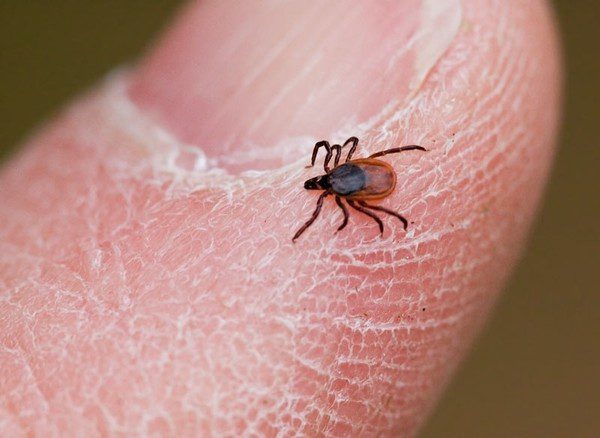
Yep, they’re here again and it’s turning out to be another crazy year for one of the little vampiric and potentially disease-carrying pests of the Michigan spring and summer.
We were hoping that because of the late and cold spring we wouldn’t see quite as many ticks but from what we’re hearing and seeing, this doesn’t seem to be the case.
The best way to deal with ticks is to prevent them from making your pet their new home in the first place, which means using a preventive. It’s important to note that tick preventives can be oral or topical and as such, they work in different ways, as Ann Arbor Animal Hospital’s Dr. Franklin explains:
“A topical repellent like Effitix has excellent flea and tick control and can repel mosquitoes as well. It may cause some ticks to try to jump off before they die; for me, this may result in a tick on a seat in the car which later climbs on me, after hiking with the dog and both of us coming home in the car. A potentially major drawback of topicals is that repeated baths or swimming will lower their efficacy.
Oral medications like Simparica and Nexgard have excellent flea control even at the end of the month, do not wash off, and will not, for example, expose the toddler—who is walking along hanging on the dog—to any chemicals. It may cause what I call “crispy raisin” ticks: a small tick may bite the dog and then die and be stuck in the hair and not fall off.”
Removing ticks is a simple tasks once you get the technique right. Don’t dive in and try to pick it off without taking note as to whether the tick is embedded in your pet. If the tick has managed to get its head in, removing it with care is necessary so that the head does not break off and remain in your pet’s skin. There are special plastic tick removal “scoopers” that you can purchase but tweezers or careful fingers can work as well.
Remember that ticks can carry Lyme disease! Included below is a map of the confirmed cases of Lyme disease in Michigan. You cannot contract Lyme disease directly from your pet but they can carry ticks into your house on their bodies so it’s very important to check your pet for ticks every time they come in from the outdoors. The sooner you remove the tick the less chance you or your pet has of contracting Lyme disease, though not every kind of tick carries this disease.
Check out our previous post by Dr. Jess Franklin for more information on ticks, preventives and vaccines, and check out a video on how to properly remove a tick.

Recent Posts
About Us
Ann Arbor Animal Hospital is a locally-owned animal hospital operating for over 90 years in Ann Arbor, MI.
